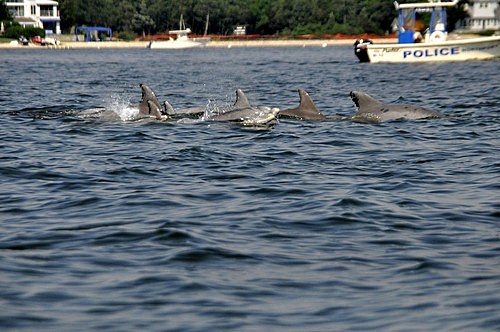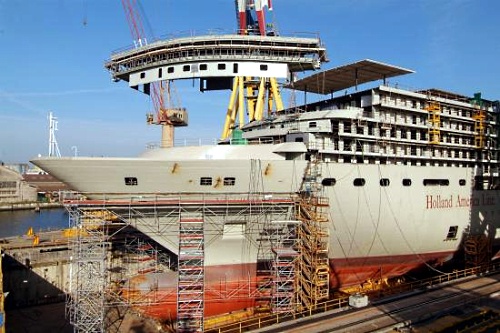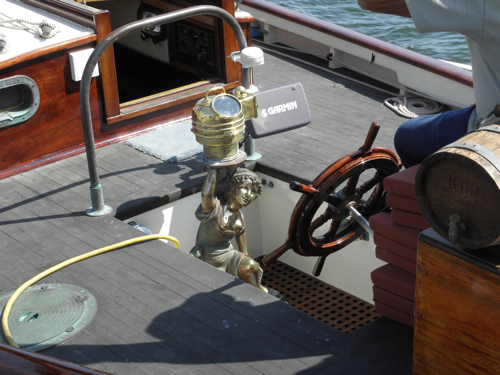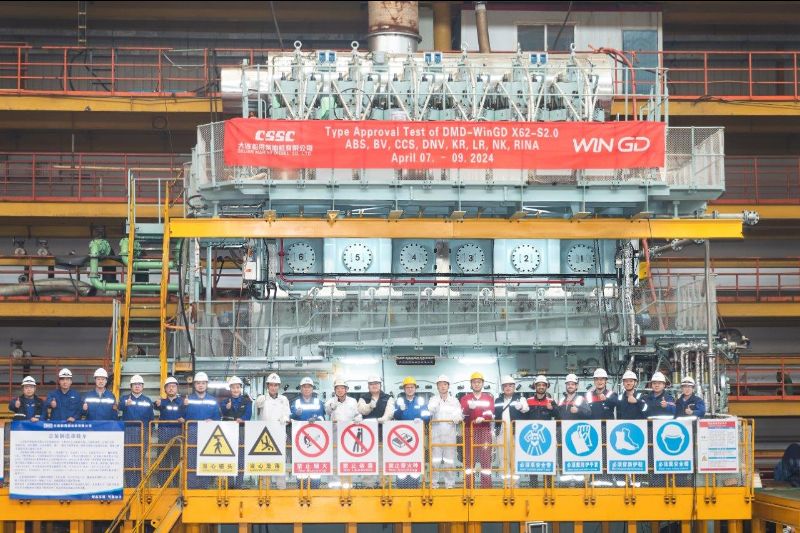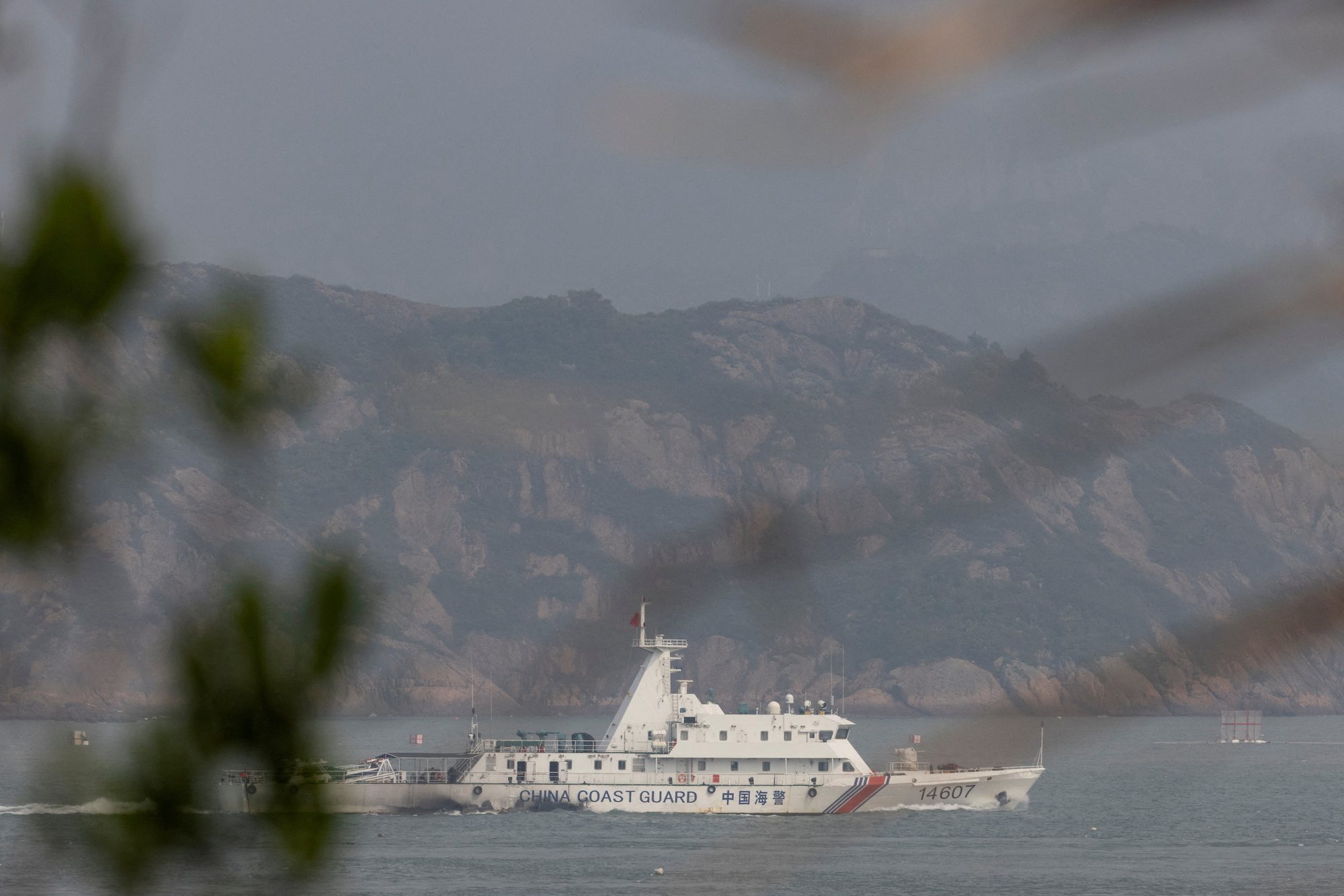Maritime Monday 169
The following is posted by Fred Fry:
Welcome to this 169th edition of Maritime Monday.
You can find Maritime Monday 119 here. (Published 14 July 2008)
You can find last week’s edition here.
You can find links to all the previous editions at the bottom of this post. You are encouraged to participate using the comment link/form at the bottom of the post. If you have photos or stories to tell, do email me at [email protected].
—————————————-
This Week’s Photos:
This week’s photos come from the website of Long Island’s Cross Sound Ferry Services:
Avoid the highway hassles and save hundreds of miles driving between New London, CT and Orient Point, Long Island, New York.
Cross Sound Ferry’s fleet of eight luxurious vessels makes any vacation, business trip or group tour relaxing while enjoying a cruise across majestic Long Island Sound, one of America’s most beautiful and scenic bodies of water. Avoid the tolls, construction, delays, and other highway hassles by taking Cross Sound Ferry.
Seven of these vessels can accommodate autos, trucks, motor homes, and buses along with passengers. Cross Sound Ferry also offers high-speed ferry service between Long Island and Connecticut with its passenger only vessel, the Sea Jet I, that can make the 16 mile crossing between Orient Point and New London in just 40 minutes!


* A Very Convenient Short-Cut *
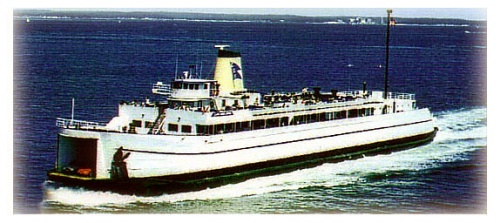

* The Cape Henlopen Ferry was built as a World War II landing craft (LST 510) in Jeffersonville, Indiana and participated in the D-day invasion at Normandy. In 1966, it was converted to a passenger and auto ferry and served on the Lewes, Delaware – Cape May, New Jersey Route. It was purchased in 1983 by Cross Sound Ferry and underwent a total refurbishment before entering service. The ferry was repowered during the winter of 1995 with EMD 12-645 diesel engines, ensuring a long future of trouble free operation. *
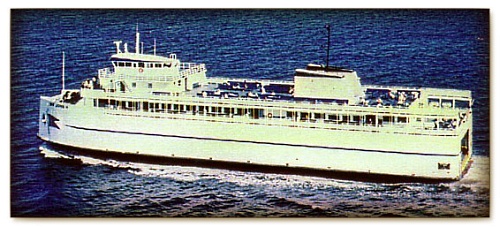

* JOHN H. *
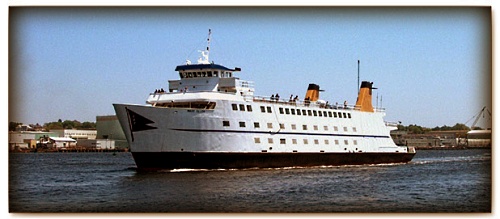

* MARY ELLEN *
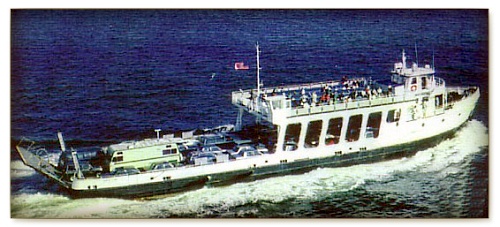

* NORTH STAR *
Their homepage can be found here.
The Maritime Executive has “Transportation Infrastructure: Boxer (almost) Gets it Right“.
Here and abroad; shortsea shipping works. One such place where the merits of a focused effort to remove heavy trucks from the nation’s highways are already reaping huge dividends is the state of Connecticut’s link to Long Island. In a 2000 survey of ferry operators, it was determined that of the 4 major operators reporting annual figures to the Federal Highway Administration, there were over 2.1 million passenger boardings and nearly 852,000 vehicle boardings of ferries servicing Connecticut’s ports. Many of those vehicles are heavy trucks and – please reach out and correct me if I have my statistics wrong – in the past five years alone, more than a million trucks were taken off the roads by such means. Think about the reduced idling time for commuters and commerce alike on the already congested Long Island Expressway alone.
I will be taking the Orient Point Ferry Monday at Noon. I’m looking forward to it and so are the kids! (Also note that I will be traveling most of this next week with limited email/internet access)
—————————————-
This Week’s Items:
EagleSpeak has “U.S. House “Acts” on Pirates” which brings out a larger discussion on US Aid:
… Pham argued that the U.S. could largely dodge piracy if the government purchased grain in East Africa instead of shipping food from the U.S. But shipping and agricultural interests have successfully blocked a policy shift toward sending local grain overland. Liberty Maritime has spent $229,000 on lobbying so far this year and the industry has a whole over $6 million, according to the Center for Responsive Politics.
“There wouldn’t be the Maersk Alabama and others if we didn’t buy grain in the U.S. and chug it halfway across the world,” Pham said. “If that grain was purchased locally in Africa, there wouldn’t be this shipping issue.”
This subsidized grain has been one longstanding complaint why Africa remains poor in that it destroys the local market prices, making life difficult for African farmers and with them all who they would employ.
Also be sure to check out EagleSpeak‘s weekly series “Sunday Ship History: The Eagle Ships“
gCaptain has “Dynamic Positioning Operators – The IDPOA Officially Launches” and “Incident Video – Ship Collision in Aegean Sea” where one ship is literally laying on top of another one.
Information Dissemination has “Another Pirate Fighting Coalition“. The Arabs want to join the party. But on which side? Just kidding, maybe.
HAWSEPIPER: The Longest Climb has yet another example of travel nightmares. This time, it is not him who is the direct victim, but his family in “So Yesterday Bank of America put my family in physical jeopardy (Part one)” and “So Yesterday Bank of America put my family in physical jeopardy (Part two)“. The end of the story does not appear to be known until close to the end of the month as his family is still trapped far from home.
Kennebec Captain has “Improving Mooring Operations on Car Ships“.
The root cause of this incident, all the mooring expertise is focused upon what apparently is the problem, the bow closing on the pier. It is my experience that often a glance aft or a word from the captain will remind the pilot to have a look back and give the aft tug the proper command.
AMVER Blog has “Amver Ship Saves Refugees” by the SKS TRINITY and “Greek Amver Tanker Rescues 2 Near Bermuda” by the ASTRO SATURN. The latter rescue was triggered by activation of a SPOT tracking beacon.
Fox News has “Staten Island Ferry Boat Accident – At least 15 people hurt“. Apparently the vessel had a power failure right before docking. (Found via The Old Salt Blog)
The Old Salt Blog has the story and time-lapse video: “The Onondaga Submarine Museum and “Monster Moves”“.
HMCS Onondaga, the longest serving submarine in the Canadian Navy, now has a new home at the Musee de la Mer de Pointe-au-Pere in Rimouski, Quebec. After narrowly avoiding being sold for scrap, the Onondaga was sold to the museum for $4 Canadian plus tax. The submarine has been restored for a reported $2.6 million, and is now open to the public.
Bob Couttie’s Maritime Accident Casebook has “Lifeboats: Never Mind The Quality, Feel The Compliance“.
The Epoch Times has “Aid Vessel En Route to Gaza Stopped by Israeli Navy“.
The Atlanta Journal-Constitution has more on the latest Gaza ‘Peace Boat’ incident with “Cynthia McKinney: I’m in jail in Israel – Ex-Ga. congresswoman detained after boat with Gaza supplies held“.
Sea * Fever has cool video: “How To: Fix a 50 Ton Rudder, At Night, Underwater“.
US Naval Institute Blog has more on double standards at the US Naval Academy with “Separate Water Fountains“.
It’s a two-track system: whites have to excel to get in, non-whites don’t have to. They just have to be non-white. And their seat, once taken, is thus denied the stellar one. In the long run this has to dilute the quality of the Navy. That’s scary. It’s also immoral. At the Naval Academy in Annapolis and arguably in the military, we’re back to the childhood I remember on the Eastern Shore of Maryland, with separate water fountains for the “colored people.” Only the water fountains for non-whites now are much better than those for the whites. Is this the way our “post-racial” Obama society was meant to play out?
I’ll never forget that phone call I made back in June 1989 inquiring about my application to the US Naval Academy as I had not heard either way to that point. I was plainly told that my spot “went to a minority”. It happened and continues to happen. If the Navy is concerning about getting more minorities into the Naval Academy, then they should try to recruit those that are qualified and who are taking advantage of other opportunities available to them. Each applicant should be scored the same way, just like a bank should limit lending solely on an applicant’s ability to repay a loan.
—————————————-
Offiziere.ch has “Armies Pursue Swarms, and Defenses against Them“. (Found via War is Boring)
In January 2008, five Iranian military speedboats swarmed three U.S. Navy warships passing through the Strait of Hormuz. There were some tense moments, as the Iranian boats sped around and through the American formation — and the Americans braced for a potential attack. “Unidentified surface craft, inbound,” a U.S. sailor announced. “Identify yourself,” he ordered, via radio, to the assailants, during the 20-minute encounter.
Breakbulk Industry News has “Port of Wilmington selected for mid-Atlantic GE Wind energy projects“. Turbine blades are impressive cargo.
Newsday has “Scientists: Dolphins’ local swim a good sign for LI“.
Some fishermen and scientists said it has been 30 or more years since they’d seen bottlenose dolphins in the Sound in the summertime, and experts agree that the marine mammals came here following food.
The dolphins are believed to number between 100 and 200, according to the Riverhead Foundation for Marine Research and Preservation. They were first spotted in the Sound last week and appeared again Monday off Smithtown.
Newsday also has a photo gallery: “Flipper invades Long Island waters“.
About 100 dolphins were spotted in Northport Harbor by Northport Police. According to police, they were just swimming and jumping throughout the harbor. (Photo by Peter Walden Sr. / June 27, 2009)
MarineBuzz has “Online Video: View Entire 2008 Hurricane Season from NASA” and “Somali Piracy: Al Jazeera Videos Reveal More“.
Puget Sound Maritime has “Merchant Mariner Credential application process: Quick, nearly pain-free!“.
California EPA has “Starting today ocean-going ships off California’s coast must use clean fuel“.
SACRAMENTO: Beginning today, July 1, all ocean-going vessels within 24 nautical miles of California’s coastline must use cleaner burning diesel fuel in order to comply with a new state regulation aimed at reducing the emissions of oxides of sulfur and nitrogen and diesel particulate matter, a known carcinogen.
“This new measure will help coastal residents breathe easier and reduce pollution in our oceans and waterways at the same time,” Governor Arnold Schwarzenegger said.
The requirement, adopted in 2008, will annually affect nearly 2,000 ocean-going vessels, both U.S. flagged and foreign-flagged, visiting California. The vessels will have to use lower-sulfur marine distillates rather than the highly polluting heavy-fuel oil often called bunker fuel.
Lloyd’s List Newsroom Blog has economic ‘green shoots’ with “Shipping’s blight“.
Bryant’s Maritime Blog has “Seaman’s claims not subject to arbitration“.
The US Court of Appeals for the Eleventh Circuit ruled that claims filed by a crewmember against his employer are not subject to arbitration. Plaintiff was injured while working as a head waiter on a Panamanian-flag cruise ship operating out a Florida port. After receiving allegedly cursory medical treatment, he took vacation time to recover. He returned to work for a short period, but never fully recovered and was eventually discharged. His original employment agreement had no arbitration clause, but the one he signed upon his return to work did include a clause providing that claims arising under the agreement would be arbitrated in the Philippines applying the laws of Panama. He brought suit in a Florida state court, asserting negligence under the Jones Act; unseaworthiness and failure to provide maintenance and cure under general maritime law; and failure to pay wages under the Seaman’s Wage Act. Defendant employer removed the case to federal court and moved to compel arbitration in accordance with the arbitration clause of the employment agreement. The trial court granted defendant’s motion and plaintiff crewmember appealed. The appellate court found that the arbitration clause did not apply retroactively to the claims that arose prior to the execution of the second employment agreement. With regard to the Wage Act claim, the court ruled that compelling arbitration in a foreign jurisdiction applying foreign law to a claim that only exists under US law would be contrary to public policy. The case was reversed and remanded for further proceedings. Thomas v. Carnival Corporation, No. 08-10613 (11th Cir., July 1, 2009). Note: At this stage, it is unclear whether this case is unique or whether it will open floodgates of litigation in US courts by foreign crewmembers serving on foreign ships.
The Stupid Shall Be Punished has “Using Lasers To Find Submarines“.
The Merchant Marine Express has “Howdy Stranger!” The Chief Mate of my first ship lived only two block from my home. This is a small industry in many ways.
Weeks or days may unfold, before you find out that a fellow mate or assistant engineer worked on the same ship as you, just weeks prior to your term or that their wife attended a class at a college whom your brother was an instructor. The realization that someone closeby might have more in common than you think. At the end of this four month trip, I’m chomping at the bits to find a great opportunity and mingle with family and friends, once I am back on the beach.
Casco Bay Boaters Blog has “Open Lighthouse Day; The List“.
Ship Nostalgia has Ship engine manufacturing photos: “Big Machines That Make Even Bigger Machines: William Doxford & Sons; Ship Builders, England“. (Found via Casco Bay Boaters Blog)
HollandAmericaBlog has “Nieuw Amsterdam is Looking Good: Part 1“.
—————————————-
Space War has “Medvedev urges swift repairs to Indian-ordered carrier“.
“We must finish it and sell it. Anything else would set a very poor precedent,” Medvedev was quoted by news agencies as saying on a visit to the Sevmash shipyard on the White Sea in Russia’s northern town of Severodvisnk.
Last year, India and Russia ended a protracted dispute over the cost to modernize the 44,570-tonne aircraft carrier, the Admiral Gorshkov, which will be sold to the Indian navy at an undisclosed price in 2011.
Maritime Information Centre has “Solar ship arrives at Port of Long Beach“. The ship is the car carrier AURIGA LEADER. More info at gCaptain Here.
The US Navy has “Civil Service Mariners Critical To Navy Ethos, Success” covering the civilian crew of the dry cargo/ammunition ship USNS RICHARD E. BYRD.
Shirlaw News Group has “Ships Collide in Öresund Strait“. Raw Uranium and methanol cargos do not mix…
Tugster has “Why Wood 2” and “Why Wood 3“.
Mr. Boat Blog has video of a man jumping out of a helicopter to catch a fish.
Hellenic Shipping News has “First new building orders from Hellenic shipping interests arrive: A sign of improved optimism?“
BarentsObserver has Russian Sub news in “Typhoons will come back in service“.
Lighthouse News has “Winter Storms Wash Away Lighthouse – South Africa’s Kowie River Breakwater Light Disappeared“. It is winter in the Southern Hemisphere.
Shipgaz News has “Eimskip taken over by creditors“.
The Yankee Sailor has one final post: “The Yankee Sailor, Decommissioned“. He will continue to post elsewhere.
IceNews has “Norway calls off whale hunt this year” due to a lack of demand and “Greenland asks to raise whale-hunting quota“.
SIKUnews reports that Greenland wants its annual quota to represent the equivalent of 730 tonnes of whale meat, as the IWC already agreed upon under the aboriginal subsistence programme. This programme, used mainly by the Inuit people, does not affect the risk of whale extinction. It also reflects the nutritional and cultural needs of the indigenous people of Greenland.
Welcome to the Fast Lane: The Official Blog of the U.S. Secretary of Transportation has “California’s ports: transportation leadership at work“.
Arctic Focus has “Study shows Arctic ice at an 800 year low“.
THE ISLOMANIAC has “Rarotonga, Cook Islands“.
Greenpeace explains “Just how do you get Internet at 82 degrees North?“.
The Arctic Sunrise is on top of the world right now, at 82 degrees North, and the difficulties encountered are not just weather related. Because so few people live that far North, satellite cover is almost nonexistent, and staying in touch with the ship is a complicated operation.
The Horse’s Mouth has a photo of surfing down a huge wave.
—————————————-
Fairplay Daily News has:
At odds with US on piracy – INTERTANKO declared again today that arms on merchant ships are no way to fight piracy – flying in the face of recent US proposals on protecting seafarers from pirates.
The use of arms “escalates the violence” from piracy and increases the risks to crew members, Intertanko’s marine director, Captain Howard Snaith, told Fairplay.
His warning followed a House proposal to give immunity to seafarers who kill suspected pirates. And the House late last month approved legislation that requires the placing of armed military aboard US-flagged ships at risk of hijacking.
The US Constitution’s unique reference to the right to bear arms could be an influence on the US approach to the problem, Snaith suggested.
“With all due respect, our cultures are quite different,” he said, contrasting the UK with the US.
Each flag state, though, has the right to act as it sees fit for their own seafarers and ships, said Snaith, who pointed out that problems could occur when a US-flagged ship is involved in an incident in another country’s waters.
The best approach, Intertanko advised, is to continue naval co-operation and for owners to register and submit ship movements to the Maritime Security Centre Horn of Africa – which is “absolutely” working, according to Snaith.
The number of “successful” piracy attacks has gone down, he added, so “it really does have teeth”. – Fairplay Homepage (Used with Permission)
AND:
Yacht falls off cargo ship – A YACHT which fell off a cargo vessel off San Diego and immediately sank is just one of a spate of incidents that have occurred in Californian ports.
A second incident involved Swedish-flagged Otello, which hit a pier at the Port of Hueneme on the weekend, causing damage to the ship but no personal injuries. The cargo vessel was due to offload a consignment off vehicles from Europe. In the San Francisco Bay the Panamanian-flagged vessel Kriti Jade sustained what the coast guard called “minor damage” when its navigational mast hit a highway bridge. The vessel was moving from Tesoro Avon refinery in Martinez to San Francisco. There were no reports of fuel being spilt. The coast guard is investigating the accidents. – Fairplay Homepage (Used with Permission)
—————————————-
Submissions for future editions:
Please submit articles for inclusion in next week’s edition using the following submit form at Blog Carnival. You are also welcome to email stories and photos to [email protected] for inclusion in future editions as well as suggest areas of coverage.
—————————————-
Previous Editions: As linked below or click on the tag ‘Maritime Monday’ for all gCaptain editions.
1 – 2 – 3 – 4 – 5 – 6 – 7 – 8 – 9 – 10 – 11 – 12 – 13 – 14 – 15 – 16 – 17 – 18 – 19 – 20 – 21 – 22 – 23 – 24 – 25 – 26 – 27 – 28 – 29 – 30 – 31 – 32 – 33 – 34 – 35 – 36 – 37 – 38 – 39 – 40 – 41 – 42 – 43 – 44 – 45 – 46 – 47 – 48 – 49 – 50 – 51 – 52 – 53 – 54 – 55 – 56 – 57 – 58 – 59 – 60 – 61 – 62 – 63 – 64 – 65 – 66 – 67 – 68 – 69 – 70 – 71 – 72 – 73 – 74 – 75 – 76 – 77 – 78 – 79 – 80 – 81 – 82 – 83 – 84 – 85 – 86 – 87 – 88 – 89 – 90 – 91 – 92 – 93 – 94 – 95 – 96 – 97 – 98 – gCaptain Editions: 99 – 100 – 101 – 102 – 103 – 104 – 105 – 106 – 107 – 108 – 109 – 110 – 111 – 112 – 113 – 114 – 115 – 116 – 117 – 118 – 119 – 120 – 121 – 122 – 123 – 123a – 124 – 125 – 126 –127 – 128 – 129 – 130 – 131 – 132 – 133 – 134 – 135 – 136 – 137 – 138 – 139 – 140 – 141 – 142 – 143 – 144 – 145 – 146 – 147 – 148 – 149 – 150 – 151 – 152 – 153 – 154 – 155 – 156 – 157 – 158 – 159 – 160 – 161 – 162 – 163 – 164 – 165 – 166 – 167 – 168 – 169
—————————————-
Unlock Exclusive Insights Today!
Join the gCaptain Club for curated content, insider opinions, and vibrant community discussions.
Be the First
to Know


Join the 107,324 members that receive our newsletter.
Have a news tip? Let us know.
Why Join the gCaptain Club?
Access exclusive insights, engage in vibrant discussions, and gain perspectives from our CEO.
Sign Up
 Join The Club
Join The Club



